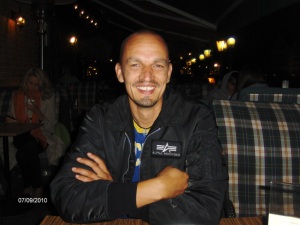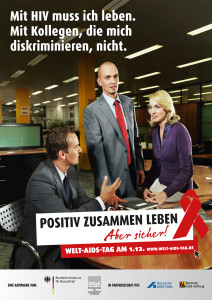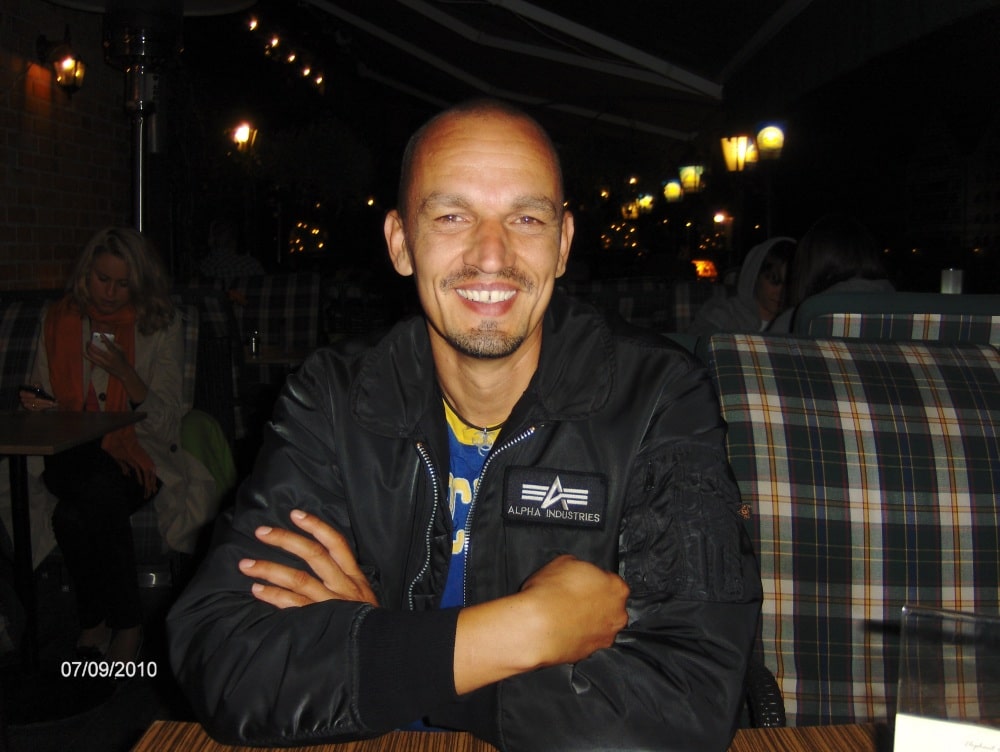"Then you find yourself in the strange situation of having to comfort people yourself." Bank clerk Dirk Stöllger on coming out of HIV.
You tested positive 12 years ago as a surprise. What was that like for you?
That was the first thing that pulled the rug out from under my feet. Horror scenarios didn't build up in front of me. After all, I knew the state of research at the time - I had already had an HIV-positive partner before. But it's a different story when it hits you yourself. I was on sick leave for three weeks.

You've been working as a banker for 28 years. What did you do when you returned to work?
I had two options: either hide my infection. Or deal with it proactively. I opted for the second option.
So a coming out in front of all your colleagues?
Exactly. I didn't work at the head office back then, but in a branch. On Monday mornings, there are always the so-called "branch meetings", where business matters, but also private matters such as Christmas parties or similar, are discussed together. I asked to speak right at the beginning and announced that I would no longer be available for the position of first aider with immediate effect.
...a first aider, the person who provides first aid in an emergency, is mandatory in every public institution...
That's right. And then I asked that my successor should also use protective gloves in the unlikely event that I collapse bleeding myself. Of course, I then saw it rattling in the faces of my colleagues.
Does that mean you didn't have to say much more?
My colleagues knew that I was gay, of course. After all, I'm not a clamp nurse! One colleague started to cry, stood up and gave me a hug. We didn't talk much more about the banking business. In fact, there was more crying than talking. You end up in the strange situation of having to comfort people yourself. Heterosexuals in particular believe that you'll be dead in two years. Of course, that was much more prevalent in people's minds 12 years ago than it is today.
Were there any other episodes?
The only difference was that the branch opened later that day. A sign informed customers of a "technical fault in the operating process". And that was the end of the matter.
Do you think this experience is typical?
Typical for my bank, in other words my employer. Bank employees generally have a certain level of education. And even if someone had wanted to discriminate against me, they certainly wouldn't have dared to do so at our bank. The bank's regulations expressly prohibit any form of discrimination. Against race, gender, sexual orientation or health status. This is also backed up by sanctions under labour law. Anyone who discriminates has no place in our organisation. Of course, that made it easier for me.
You have been working for five years as one of the company's five full-time works council members in Berlin.
Yes, I now only look after the emotional lives of our employees myself. Incidentally, my election has also shown that my openness has not harmed me, but rather benefited me in terms of banking policy. If anything, my voters have increased as a result. 2500 employees obviously don't mind that I'm gay and HIV-positive.
Have you encountered other cases of discrimination in these five years?
That really happens very rarely. I remember one case of a lesbian colleague who was cut by her boss and had to put up with stupid comments. But the employer is absolutely consistent in these cases. No ifs, ands or buts. The colleague in question no longer works for us.
In 2010, you were featured on posters throughout Germany in the first "HIV and work" campaign. "I can live with HIV. But not with colleagues who discriminate against me." How did that come about?
They were looking for HIV-positive people who don't necessarily work in clichéd professions such as hairdresser, flight attendant or barman. They came across the article about me in the FAZ from the previous year.

Photos were taken in the shop for the campaign poster. How did that go?
They wanted to show a real working environment and real colleagues in the photo. The Federal Centre for Health Education itself received permission from Frankfurt. Of my twelve colleagues from the branch at the time, eleven actually agreed to be in the photo - two were only needed. Even I hadn't expected this response.
What were the reactions?
There was almost exclusively applause. I was always waiting for something to happen. But nothing happened - except that I was inundated with press appointments.
Did your former partner do the same and come out at work?
No, he works in the construction industry, which is extremely hetero. He was also quite shocked when I appeared on the posters - after our separation, by the way. Of course, many people knew that I was his ex. My current partner is also HIV-positive and is not out at work: his employer is a discounter chain that is known to be extremely employee-unfriendly.
Do you think people suffer from the game of hide-and-seek?
I think so. If only when it comes to justifying medical appointments. It would certainly be easier for everyone if we could deal with the issue more freely in all sectors.










